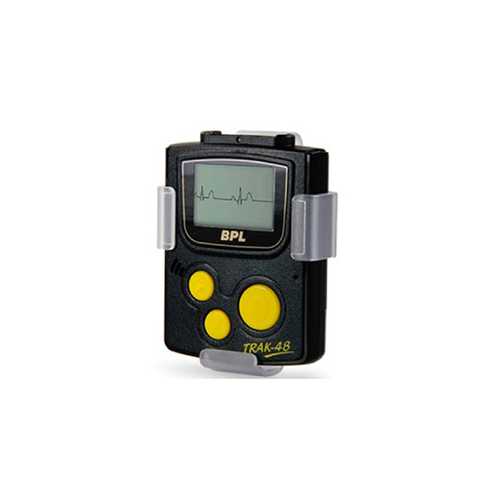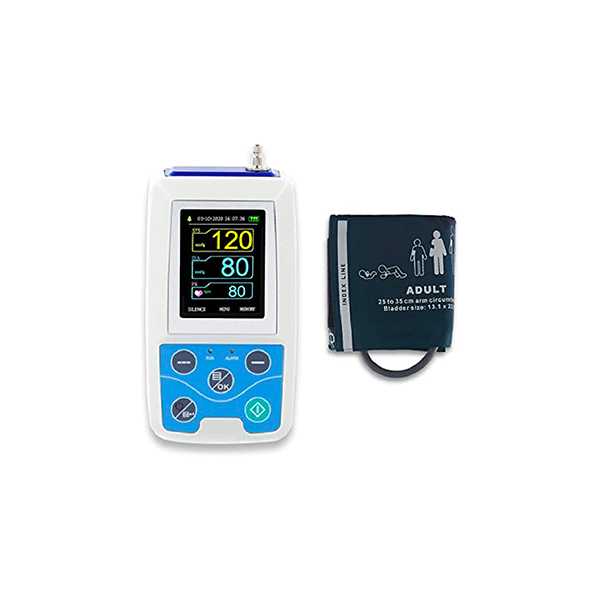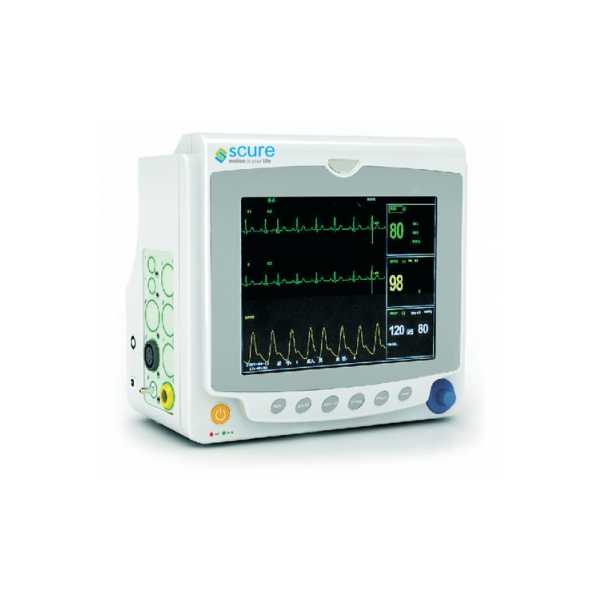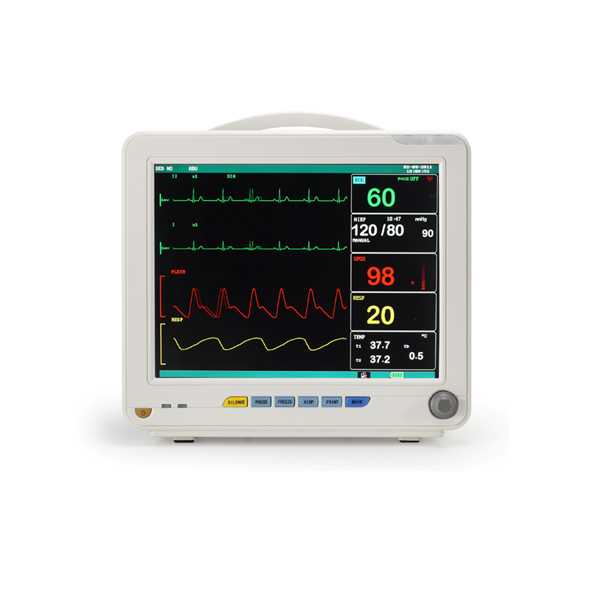holter monitor trak 48

Rental Price: ₹3000 for days
* Talk to us to know about available packages.
holter monitor trak 48
At Portea, we provide a range of healthcare services, such as home care nursing, doctor consultations, in-home physiotherapy, and caregiver support. Additionally, you can rent or purchase the Holter Monitor Trak 48 from us. This compact, battery-operated device tracks your heart’s activity, offering essential insights into its rate and rhythm. With continuous acquisition of high-fidelity ECG readings, it enables convenient heart monitoring. Trust Portea for premium medical equipment like the BPL Digital Holter Trak 48 and enjoy the convenience of monitoring your heart health from the comfort of your own home.
dimensions
- WEIGHT- 42 grams (excluding battery),
- DIMENSIONS-68mmX53mmX16mm.
features
- Compact and Lightweight,
- Fully Programmable,
- High Fidelity,
- High-Quality Performance,
- 12-Lead/ 3 Channel Two Work Modes,
- Lower Power Consumption,
- Removable SD Card,
- LCD Display,
- Pacemaker Detection,
- Two Optional Modes of ECG Data Transfer.
how can we help?
When it comes to renting Holter Monitor Trak 48, rely on Portea for all your needs. Explore our comprehensive catalog online and conveniently rent the equipment you need through our user-friendly platform, email, or a simple phone call. We guarantee swift delivery of your chosen equipment directly to your doorstep, ensuring a hassle-free and accessible process for you.
We also offer a range of superior healthcare services, including doctor consultations, physiotherapy, nursing home care, diagnostics and vaccination services. Trust Portea for your medical equipment rental needs and enjoy the convenience of quality healthcare equipment at your fingertips.
medical equipment near you
Accessing vital Holter Monitor Trak 48 is now simpler than ever. Bid farewell to trips to clinics and hospitals. Just search for medical equipment near you and trust Portea for doorstep delivery of premium medical equipment for rent or purchase. We offer state-of-the-art solutions, ensuring you have the necessary tools to monitor your health from the comfort of your home, eliminating the inconvenience of traditional healthcare visits.
benefits of getting medical equipments from portea
- Convenient Home Delivery: Our products are delivered right to your doorstep, saving you valuable time and effort.
- Flexible Rental or Purchase Options: Choose between renting or purchasing medical equipment, providing you with the flexibility to access healthcare on your terms while ensuring affordability.
- Service across Various Cities in India: Our services extend to numerous tier-1 and tier-2 cities across India, ensuring that our products are readily available to all our customers.
- Diverse Range of Medical Equipment: Explore our extensive selection, which includes hospital beds, ventilators, CPAPs, BiPAPs, oxygen concentrators, nebulizers, and more, catering to diverse healthcare needs.
- Trusted Brands: We offer top-quality medical equipment from renowned brands like Philips, Resmed, EZ Life, Niscomed, Stellar, and others, ensuring quality and reliability.
- Product Standards: Our products are FDA and QAI approved across multiple cities. Additionally, our products are ISMS accredited and sourced from ISO distribution hubs (ISO 9001:2015, ISO 270001:2013).
- Responsive Customer Support: Contact us for assistance via phone at 1800 121 2323 or email at customersupport@portea.com. We are committed to providing excellent customer service to effectively meet your needs.
faqs
1. How can I rent medical equipment?
Renting medical equipment is easy and convenient. You can book online by visiting our website at https://www.portea.com/medical-equipment/, send an email to bookings@portea.com, or simply give us a call at 1800-121-2323.
2. What Does A 48-Hour Holter Monitor Do?
A 48-hour Holter monitor is a medical device that continuously records and measures the heart’s rate, rhythm, and heartbeat type over a 48-hour period. This monitoring helps identify irregular heart rhythms, variations in heart rate, or missed beats (palpitations) that may not be observable during a short-term electrocardiogram (EKG). It provides crucial data for healthcare professionals to diagnose and manage heart-related conditions.
3. What Indicates A Normal Holter Monitor Result?
A normal Holter monitor result shows no significant changes or abnormalities in the heart’s rhythm throughout the monitoring duration. This suggests that the individual’s heart functions normally without irregularities or arrhythmias. It’s important for a qualified healthcare professional to interpret Holter monitor results accurately to ensure proper diagnosis and management of any underlying cardiac issues.
4. Can You Wear A Holter Monitor While Sleeping?
Yes, you can wear a Holter monitor while sleeping. The Holter monitor is a painless, noninvasive device worn on a belt or strapped to the body. The electrodes and wires can be discreetly concealed under clothing. It’s crucial not to remove the Holter monitor during the recording period, including during sleep. This continuous monitoring provides valuable insights into the heart’s rhythm and function during various activities, including sleep.
5. Does A Holter Monitor Detect Artery Blockages?
A Holter monitor primarily detects and monitors abnormal heart rhythms (arrhythmias) and irregular heartbeats over an extended period, typically 24 to 48 hours. While it aids in diagnosing conditions like atrial fibrillation and heart block, it’s not specifically designed to detect artery blockages. Other tests, such as an electrocardiogram (ECG), stress test, echocardiogram, or angiogram, are used to diagnose artery blockages. The focus of the Holter monitor is on assessing heart rate, rhythm, and detecting arrhythmias.
6. How Does A Holter Monitor Compare To An Ecg?
A Holter monitor and a standard ECG (electrocardiogram) serve different purposes and offer distinct advantages.An ECG records a brief snapshot of the heart’s electrical activity for a short period, typically a few seconds to minutes. It’s commonly used in routine checkups or when experiencing symptoms like chest pain.
In contrast, a Holter monitor is a portable device that continuously records the heart’s activity over an extended period, usually 24 to 48 hours or longer. It’s beneficial when symptoms occur sporadically or are not captured during a standard ECG. The Holter monitor provides a comprehensive view of the heart’s rhythms during daily activities and sleep, enhancing the detection of abnormalities.
In summary, while an ECG is suitable for quick assessments during a specific time, a Holter monitor is advantageous for monitoring over extended periods to detect intermittent or asymptomatic heart rhythm abnormalities.
7. Which cities provide in-home Holter Monitor Trak 48 services delivery to your residence?
You can have in-home Holter Monitor Trak 48 delivery at home in Bangalore, Delhi, Mumbai, Chennai, Kolkata, Hyderabad and across other leading tier 1 and tier 2 cities. You can conveniently rent or purchase Breast Pump (Manual/Electric) online from Portea Medical Equipment by searching for “Medical Equipment near me,” and your selected Medical Equipment will be promptly delivered to your doorstep.
Doctor Consultation
Nursing
Physiotherapy
Trained Attendant
Elder Care
Mother & Baby Care
Lab Tests
Medical Equipment
Speciality Pharma
Critical Care










